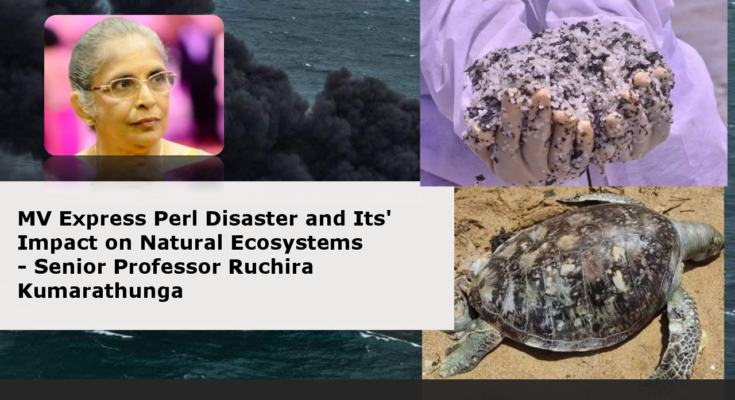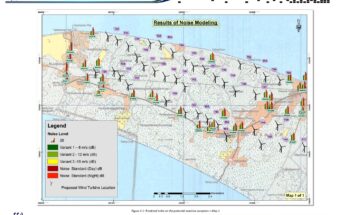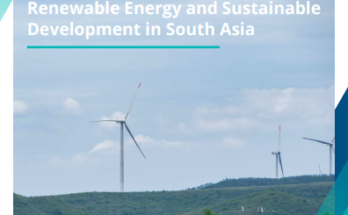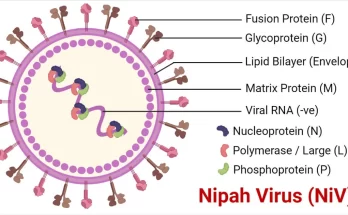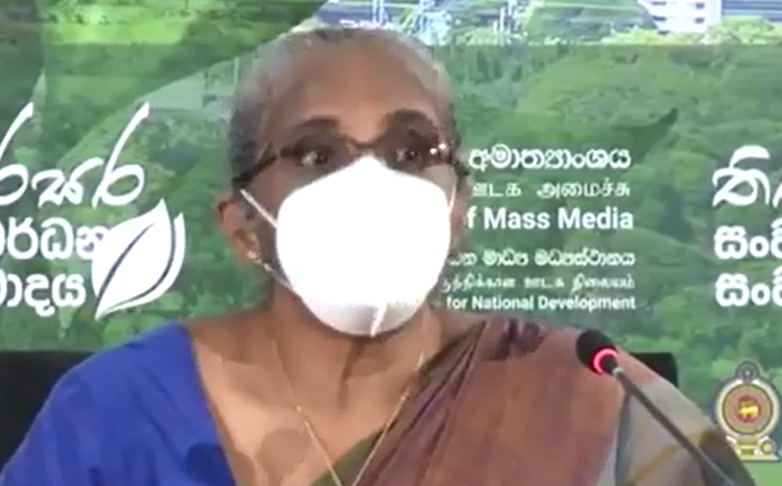
As a country Sri Lanka is facing one of the worst environmental disasters with the MV Express Pearl ship accident. Mitigating various problems that has arisen as a result of this disaster is no easy task as we first have to get the actual picture of the extent of damage caused by this incident to the marine environment and living organisms in these affected areas. We can find answers only after looking at the actual situation. So, even though we like it or not we will have to be patient and wait for some time to understand the real situation. Prof. Ruchira Kurarathunga, the first dean of the faculty of Faculty of Fisheries and Marine Sciences & Technology of University of Ruhuna expressed these remarks during a special press briefing held yesterday, 17th July 2021 at Department of Government Information.

Prof. Kumarathunga explained how the scientists from NARA are carrying out the investigations right from the beginning of this disaster. And explained the challenges they are facing as scientists.
“Our investigations can be categorized in to three main time frames as,
- During the fire and Explosions
- After containment of fire and moving the ship to a different place
- The present and Future Situation
As a country we haven’t done a proper study of the marine ecosystems around the island, as of now we only have information of few studies that have been done in few smaller regions. So, understanding the changes that have been resulted from this ship disaster is itself is a challenge as we don’t have data on how those ecosystems actually were before the incident. So, during these investigations we collect whatever the data we had about these affected environments, and also, we have been collecting scientific information from different locations, different time frames, and different sources (Biological and Physical), and these collected data will be subjected to a proper laboratory and statistical analysis. “
“During the ongoing investigations different components are considered,
- Biodiversity – Biology, Ecology, Life Cycle Changes, Population Dynamics, and economic importance
- Different ecosystems – Shore, Corel Reefs, Lagoons, Mangroves, Estuarine
- Chemical compositions of Water, Sand, Sediments and Animal tissues
- Impact of weather and other environmental factors on dispersal of pollutants and movement of affected organisms
Currently NARA scientists utilizing whatever the resources we have continue the collection of samples from the effected areas. Specially the NARA research vessel “Samudrika” has been a very big asset in these works.”
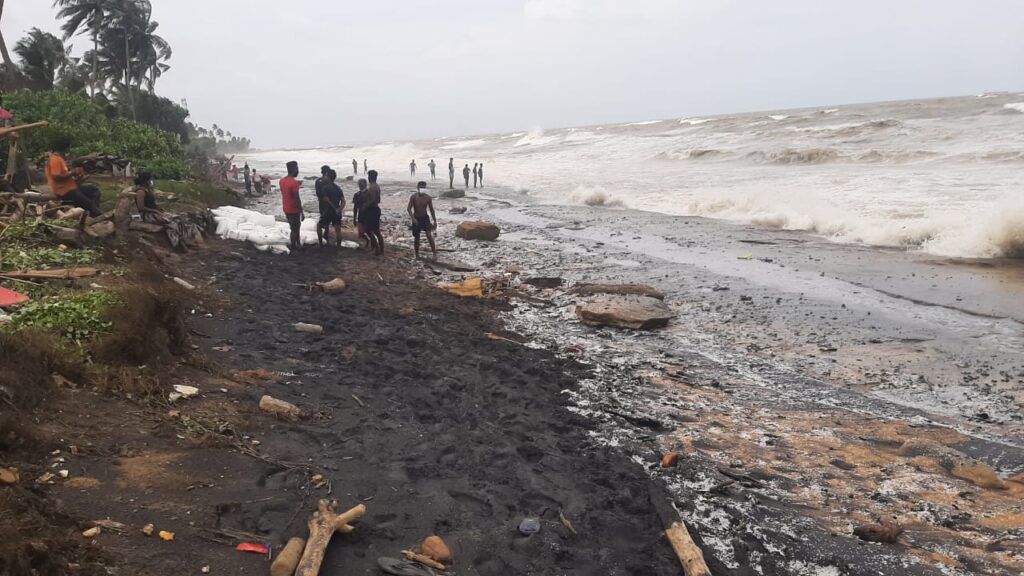
“When we consider about the organisms that we have to investigate for possible impact, you can get a clear idea on what we are going through as scientists. As a rich biodiversity hotspot Sri Lankan ocean is home to thousands of living organisms that include Fish, Mollusks, Crustaceans, Mammals, turtles, and many more. With the very limited physical and human resources we are trying our best to scientifically analyze the samples we collect from these animals. Apart from these we have to pay our attention to micro-organisms living in this region. Because even though they are small they play a major role in food chains in those ecosystems. Those micro-organisms include planktons, Eggs and larvae of various fish species and many more. “
“Scientific studies and the techniques we use on these animals may differ from species to species, so these studies can take some time as we are experiencing right now. In these studies, we have to analyze different food webs that these animals are part of, and how a significant loss of part of a food web can affect others that they are interacting with. “Prof. Kumarathunga added.
Evidence for Possible Impact
Prof. Ruchira expressed that the evidence they get from the affected areas show a glimpse of an adverse impact of the naval disaster.

“During Last few days we saw many dead fish carcasses washed ashore along the western coast of the island, many of those fish had died with their mouths open, and that indicate suffocation as the reason behind the deaths, and also, we observed plastic nurdles inside many of those carcasses. So, going by these observations alone we can guess that those plastic nurdles may have played some kind of a role in these deaths. But we will have to continue these studies further as the things in that sunken ship are still coming out to the surrounding waters taking the destruction to the coming months as well. And also, we observed that the major reasons behind the fish and turtle deaths are now different from earlier days of this disaster. For an example we saw turtles that had been died with burn injuries. But nowadays we come across dead turtles with their moths open. So, we have to continue the studies to get a clear idea about what these animals have gone through and assess the cause of their deaths correctly. “ says Prof. Ruchira.
We Still haven’t Seen Some of the Damages that May Have Happened in Some Affected Ecosystems
According to Prof. Ruchira we are yet to see or assess the damages that may have happened to some of the delicate ecosystems including Coral Reefs and Under sea grass beds. The strong monsoon currents do not allow us to get clear pictures of those ecosystems so it’ll take some time to assess the real damages happened to those ecosystems.
What ever the damages that may have happened we have to take our best efforts possible to restore those ecosystems. Because these ecosystems play a major role in Sri Lankan Tourism industry. For an example replanting corals, and turtle conservation projects can be carried out with an added effort to restore the glory of those delicate natural resources back.

